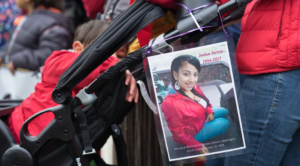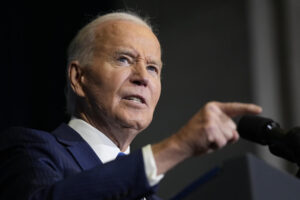“History is not the danger to our children’s minds,” the mom and actress wrote on Instagram.
Evelyn Frick
Evelyn Frick (she/her or they/them) is a writer and comedian and an editorial assistant for Kveller’s sister site Alma.
Conservative lawmakers in the United States love banning books — especially books about the Holocaust. Over the past year, a school board in Tennessee banned the graphic novel “Maus,” a school in Texas removed an illustrated copy of “The Diary of Anne Frank” from its library, and a high school librarian in Bucks County, Pennsylvania was even forced to take down a quotation by Holocaust survivor and Nobel Peace Prize winner Elie Wiesel. In each case, these important books, which also serve as historical records containing portraits of humanity at its worst and its best, have been deemed profane, too sexual and/or too political.
For Jews, it’s an all-too-familiar reminder of the descent into fascism our society risks when we censor free thought and stop teaching history (and empathy). And for Jewish actress Selma Blair, enough is enough.
Last week, in conjunction with the #LetAmericaRead campaign, Blair took to Instagram to post about “Night,” Elie Wiesel’s masterful memoir about his experience in Auschwitz and Buchenwald. (Currently, “Night” has been banned in classrooms in North Carolina’s Pitt County Schools and is banned pending investigation in Katy Independent School District in Texas.) In the post, she explains that reading “Night” at age 11 changed her life, inspiring her to read “The Diary of Anne Frank” and books by Primo Levi, and to further educate herself about the Holocaust.
“There is grace in knowledge and understanding how the machinations of evil became the most horrific chapter of our modern existence. The accounts show strength in abomination,” Blair tells her followers.
Going on, Blair speaks directly to those who want to censor “Night”:
“Parents and lawmakers who wish to ban this book from the canon of our education, I remind you that this is mirroring the Nazis and fascists in that when the goal is to control the messages in our literature and art, we risk losing the memory of how things happen. The history is not the danger to our children’s minds. Elie Weisel lived through these hell nights. This genocide. This torture. This horror. So that we do not have to.
“Read this book. I warn of passivity in the face of book banning, of our American Democratic rights. Read this book and tell me what you think. I wish us grace. I wish us to be able to confront the truth. And Never Forget,” she concluded.
Thank you, Selma, for your powerful testimony on behalf of “Night” — made even more meaningful by its proximity to Yom Hashoah this year. Let us hope that it makes a difference.




